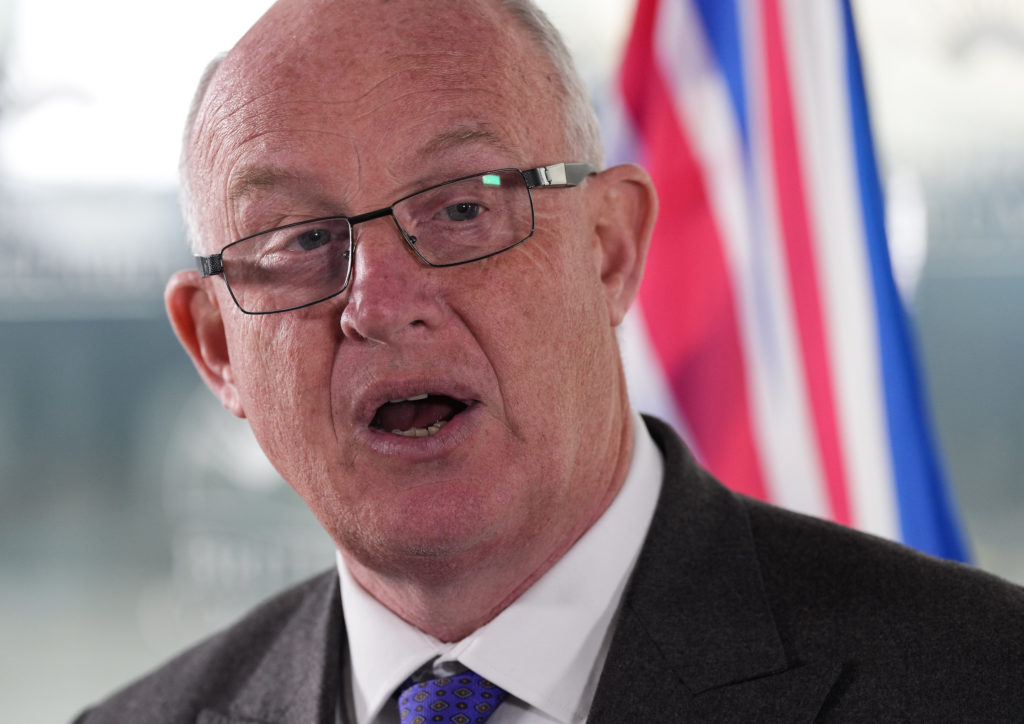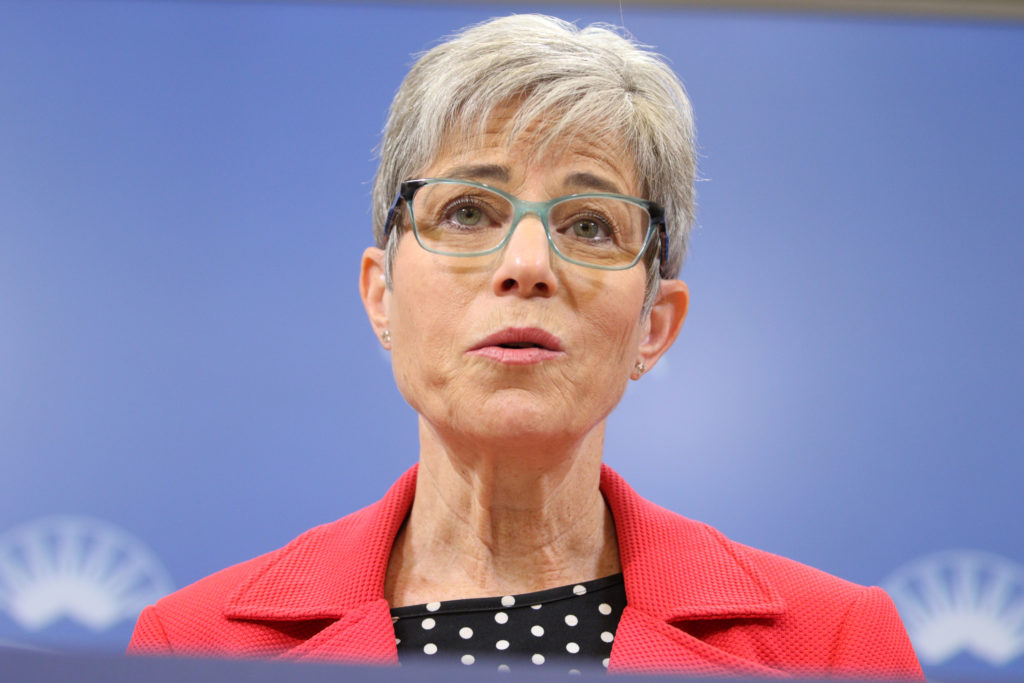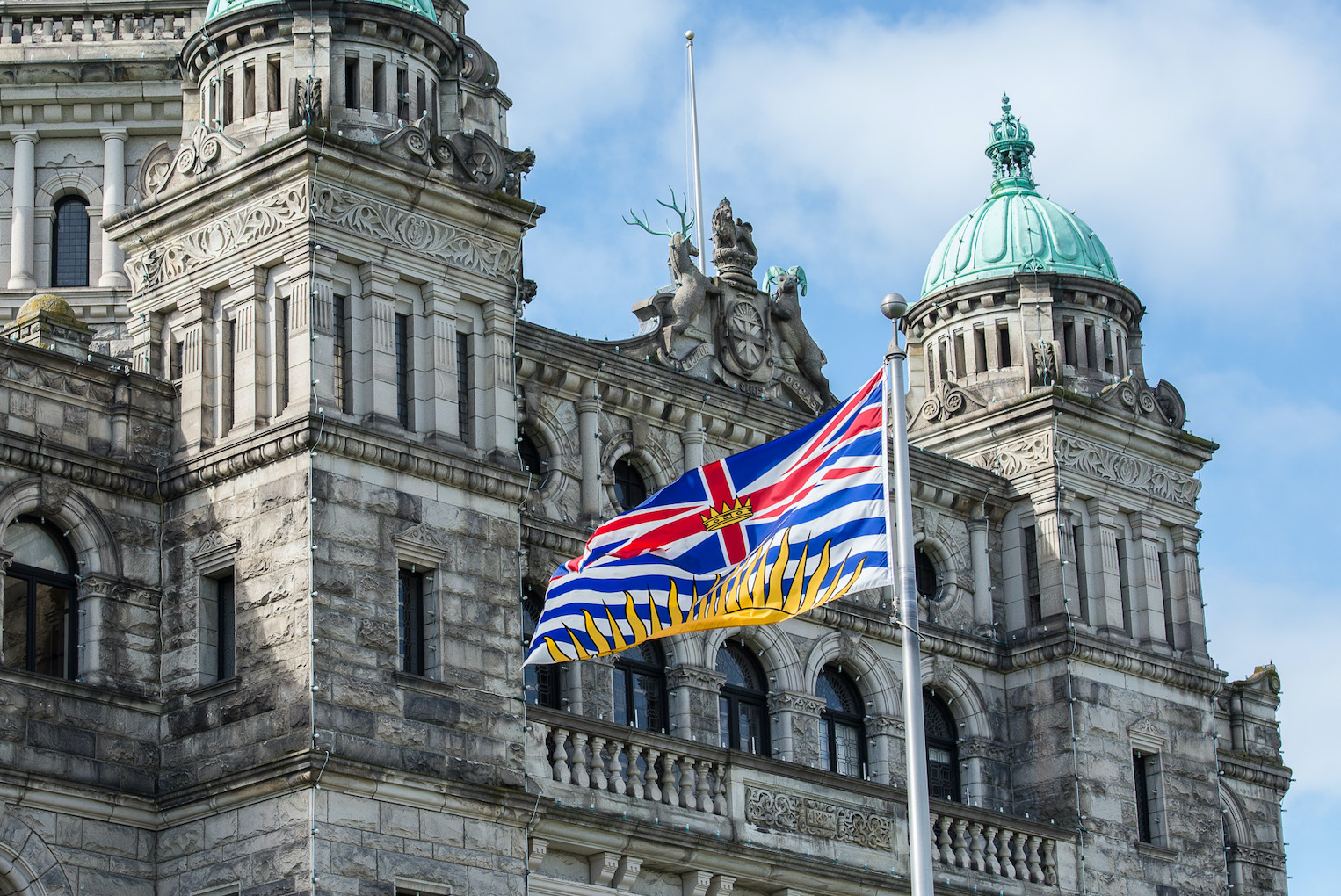The Legislative Assembly of British Columbia resumes this week amid a B.C. NDP leadership race to replace outgoing Premier John Horgan, who announced his resignation over the summer. The legislature will sit for six weeks, with the session ending on November 24th.
With in-person events having resumed near the end of the spring session earlier this year, this will be the first session since 2020 which will see an increase in stakeholder presence and events in Victoria.
There is an ambitious amount of legislation to move through this fall, with some having been on hold since very early on in the pandemic. Government House Leader Mike Farnworth indicated that more than a dozen bills will be brought forward.

In the background of the session is the B.C. NDP leadership race, with October 4 being the cut off date for any candidates to submit their paperwork to officially enter the race.
Recent polling suggests that Premier Horgan is leaving office with a relatively high approval rating, but the degree to which this approval benefits his successor remains to be seen.
Policy developments over the summer
Inflation, affordability and health care have been top of mind for British Columbians throughout the summer, and are expected to persist throughout the next legislative session.
In an effort to ease cost of living pressures, the B.C. government announced a temporary increase to the Climate Action Tax Credit and the B.C. Family Benefit and placing a two per cent cap on rent increases for 2023. The government also announced that, beginning in December, B.C. parents are expected to save $550/month in daycare fees thanks to the federal-provincial childcare agreement.
Late last week, Minister of Health Adrian Dix released a long-awaited plan addressing staffing in the health care sector. The five-year plan, called “Putting People First,” contains 70 policy actions that focus on retention, recruitment, redesign and training. It includes a commitment to expand pharmacists’ scope of responsibilities, train more healthcare professionals, and offer new education and training seats. The plan comes amidst mounting pressure on the province’s health care system, marked by ER closures, long delays for paramedics, and a critical shortage of family doctors.

On the other side of the aisle, the B.C. Liberal Party has announced it intends to vote for a name change. After a three-month public consultation period, “B.C. United” emerged as the party’s top choice. Party members will get to vote on their new name before the end of the year. The B.C. Liberals are also welcoming a new member to their benches this week, after Elenore Sturko won the September byelection in Surrey South. The riding has been BC Liberal-held since it was formed in 2017.
Government priorities
The fall legislative session will see the government try to get on top of summer inflation and rising cost of living. Gasoline and housing prices have yet to ease, and costs for food and business services continue to increase. Global inflation remains high, and measures of core inflation are moving up in most countries. Inflation, childcare and access to affordable housing will be key priorities for the government as pressure continues to build from the public.
Health care will also remain a dominant issue this fall. A recent opinion poll identified “the three most important issues that British Columbians want the next premier to focus on are health care, cost of living and the cost of housing. These priorities have shifted away from pandemic-related issues since the 2020 election.” These trends will require careful consideration by policy makers at all levels as governments move away from pandemic response.
The new Declaration Act Secretariat has now been established to support the alignment of laws with Declaration Act, after Budget 2022 enabled its creation with $12 million allocated over the next three years.
On the federal-provincial front, premiers are expected to continue pressing Ottawa for an increase to federal health transfers – advocacy Premier Horgan had been championing before handing the leadership of Canada’s Premiers over to Manitoba Premier Heather Stefanson last week. B.C. and Ottawa are also nearing a finalized Nature Agreement to support conservation activities.
This year has also been a busy year for public sector collective bargaining. A number of tentative collective agreements have been reached, including with the Hospital Employees’ Union (HEU) and the B.C. General Employees’ Union (BCGEU), but ratification votes have yet to take place. Other associations, including B.C. Nurses and Midwives, will begin their bargaining processes this month. The province’s talks with Doctors of B.C. continue.
Premier Horgan has indicated British Columbians will also hear an update on B.C.’s plans to move to a permanent daylight time.
Legislative activity
The last day of spring sitting saw Royal Assent granted to 13 bills, with Bill 26 and Bill 7 remaining on the order paper.
Environment Minister George Heyman tabled Bill 26, Environmental Management Amendment Act, during the last day of the sitting, which would correct an omission in previous amendments to the bill which stripped conservation officers of authority to hold seized items for up to 12 months, including items and substances deemed environmental hazards or pollutants.
Bill 7, Coastal Ferry Amendment Act, would give Ferry B.C. Authority the tools to “best represent the public interest,” including issuing binding resolutions on public interest matters with public reporting requirements. No action has been seen on this bill since it was introduced on February 23.
Government House Leader Mike Farnworth has stated that we can expect to see the government introduce 17 to 20 bills this fall, with a focus on health care services, access to affordable housing, and tackling rising cost of living.
On the health care front, it’s expected the government will introduce long-awaited updates to the Health Professions Act. They are also looking at a new physician compensation model developed in partnership with Doctors of B.C. and the Ministry of Health.
On housing, Finance Minister Selina Robinson recently mentioned working on an update to the 30-Point Housing Plan originally introduced in 2018.

Parliamentary Secretary Grace Lore said in a statement for Equal Pay Day that the government is working towards introducing pay-transparency legislation, and Parliamentary Secretary for Accessibility Dan Coulter has indicated that work will begin this fall to develop two new accessibility standards, the Accessibility Standard on Employment and the Accessibility Standard on Service Delivery.
Other government strategies that continue to see progress include the Wild Salmon Strategy, Watershed Security Strategy and Fund, Coastal Marine Strategy and progress on the implementation of the Declaration Act Action Plan.
The weeks ahead
- Local government elections on October 15 will see new municipal leaders at the table.
- Housing, health care, the opioid crisis and public safety are all hot topics in municipal jurisdictions across B.C. This will require close collaboration between leaders at both levels.
- The BC Federation of Labour elects a new President on November 24, with Laird Cronk retiring. Current Secretary-Treasurer Sussanne Skidmore is the only declared candidate to replace Cronk.
Upcoming events
- Legislature resumes, October 3
- B.C. NDP candidate nomination deadline, October 4
- COP 27, the 2022 United Nations Climate Change Conference, November 6 to 18 (Egypt)
- B.C. Cabinet and First Nations Leadership Gathering, November 29 to 30
- B.C. NDP Leadership Announcement Event, December 3
- COP 15, the United Nations Convention on Biological Diversity, December 7 to 19 (Montreal)
